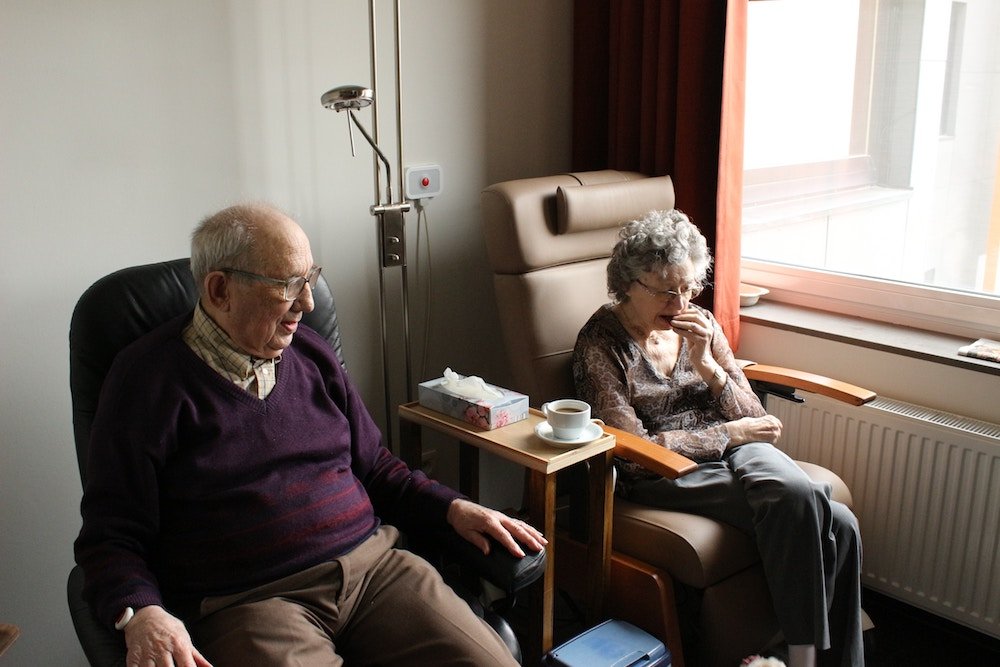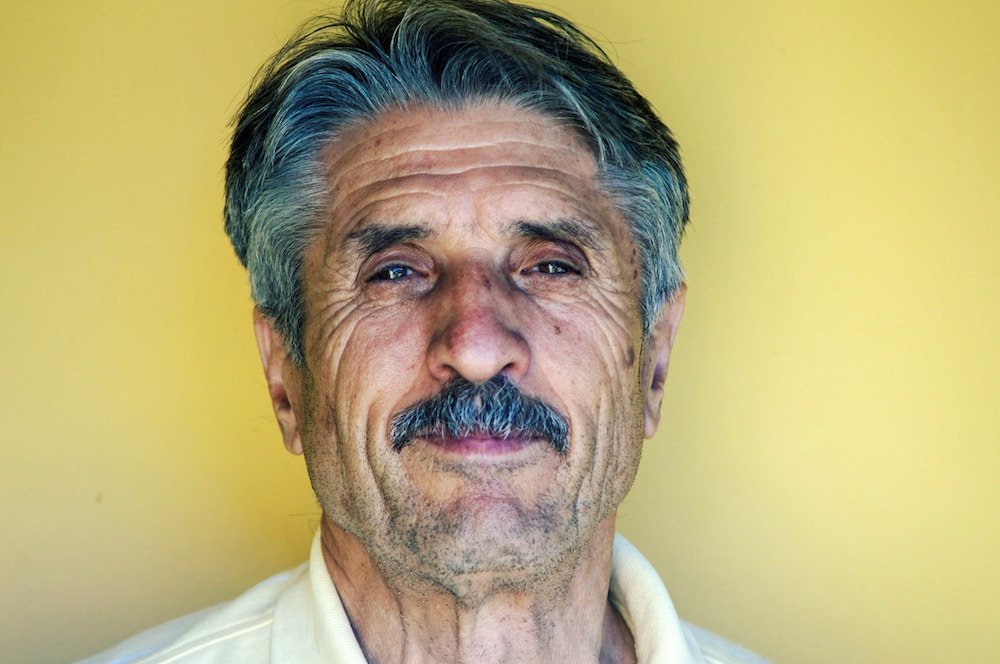In this article, we cover all the possible symptoms, challenges and what to do during the middle stage of Alzheimer’s disease.
This comprehensive “guide” will help you as a caregiver or someone who is concerned about their situation.
Alzheimer’s disease is a brain disorder, one of the most common dementia types. It causes numerous changes in the lives of persons who have the illness.
This includes confusion, memory loss, gradual loss of independence, and changes in personality among many others.
The disease progresses through four main stages.
4 Alzheimer’s Disease Stages
Pre-clinical stage

This is where a person experiences changes in the brain before any symptoms of the disease start showing up.
Early/mild stage

It is the onset of the disease that makes a person mildly experience various symptoms. Examples of such include mild forgetfulness and problems managing money, etc.
Middle/moderate stage
At this stage, the symptoms of the illness become more pronounced where persons with the disease start to face new challenges like difficulties learning new information and problems with communication amidst others.
Late/severe stage

This is the last leg of the disease where an individual becomes less independent as they have to tackle worsening symptoms before their demise.
Each of these stages of Alzheimer’s is unique in terms of the level of independence a person has and the symptoms they go through.
Today we will focus on middle stage Alzheimer’s disease. This is typically the longest stage of the illness.
Below we will let you in on what to expect during this phase.
Signs of Middle Stage Alzheimer’s disease

Some of the symptoms that you may experience during the middle stage of the illness include:
Communication Problems

Persons with Alzheimer’s gradually lose their ability to express thoughts, find the right words, and keep conversations going.
As time passes by, a considerable percentage will also have a problem understanding what other people are saying.
Communication problems that may crop up during the middle stage include repetitiveness, trouble finding the proper words, reverting to native language, losing train of thought, and relying on non-verbal communication.
Behavioral Changes

Individuals with Alzheimer’s may experience various changes in behaviors. These may include anxiety, depression, irritability, verbal, and physical outbursts.
Loss Of Independence

Most people with Alzheimer’s will start to have difficulties completing daily tasks.
They may need assistance with activities like grooming, eating, choosing the clothes to wear, taking a bath, brushing teeth, and so forth.
Memory Loss

More significant loss of memory is one of the hallmarks of mid-stage Alzheimer’s. Persons at this stage may have a hard time recalling information.
These include personal details like phone numbers, where they live, or important dates like anniversaries and birthdays.
Some people have challenges identifying people who are close to them. They may recognize familiar faces but have no clue what their names are or the relationship they share.
Other symptoms that people experience at his stage include worsening judgment and poorer concentration levels.
People with Alzheimer’s at this point may not be able to tell the time or place they are in.
Knowing the changes to expect is important for the person with the disease and the caregivers as well.
The person suffering will not be too overwhelmed with the changes happening because they already anticipate them.
Caregivers can also come up with the most suitable solutions to deal with these signs so that the person under their care remains as comfortable as possible.
With this in mind, it is also vital to emphasize that Alzheimer’s disease is an individual experience, which means that the warning signs and progression rate can vary widely across individuals.
Safety Concerns During Alzheimer’s Disease Middle Stage

The signs above may lead to the development of a couple of safety concerns for persons who are going through Alzheimer’s middle stage.
One of the main ones has got to be driving.
Because of changes that are happening in a person’s body, it is advisable for people who have Alzheimer’s to stop driving when they get to the middle stages because it is no longer safe.
Persons with the illness may find it hard at first, but the people around them must reassure them it is the right move.
Additionally, friends and relatives should make sure the affected individuals always get rides when need be.
It also becomes dangerous to leave a person who has Alzheimer’s alone during the middle stages. They are bound to wander and get lost or hurt.
Safety precautions also need to be prioritized, especially if the person is still living at home to avoid accidents and enhance safety.
If the person with Alzheimer’s lives alone, it would be a great idea for them to move in with relatives who are willing to offer round the clock care.
If this is not possible, a residential care setting is an excellent alternative.
These are usually built for seniors who have Alzheimer’s; thus, take care of resident’s needs in the proper way.
Coping with Middle Stage Alzheimer’s Disease

Going through mid-stage Alzheimer’s does not mean that life comes to an end. There are plenty of things that ill people can do to remain sane and enjoy life a little bit like:
Engage in Pleasurable Activities

Depending on the level of interest and ability, a person with Alzheimer’s needs to take part in activities they will enjoy.
This can be anything from going for short walks, gardening, crafts, or helping with meal times. These do not need to be anything strenuous and difficult.
The main goal of engaging in various activities is to have fun and forget about the sickness even if it’s just for a little while.
This will not only enhance the quality of life, but it can also help to reduce some behaviors like aggression and wandering.
Remember that the person with Alzheimer’s has to enjoy these activities, or else it will not bring forth the desired results.
Work with a Suitable Daily Care Plan

Daily routines work out well for persons experiencing middle stage Alzheimer’s disease. Planning out the day in advance means that a person knows what they will do.
This is beneficial because the suffering individual does not need to spend a lot of time trying to figure out what they should be doing.
At this stage, a caregiver should assist in planning for the day. They should schedule activities that focus on a person’s strengths, likes, interests, and abilities.
The day must include adequate time for bathing, dressing, meals, and rest time.
For people who experience any type of sleep problem, it would be best if they stick to regular times for going to bed and waking up.
Daily routines also need to be flexible enough so that if need be a person can add some spontaneous, meaningful activities.
Most importantly, the day to day routines should adapt to changes the person with Alzheimer’s is going through.
Incorporate Music and Art

Art and music have a way of enriching the lives of individuals who have Alzheimer’s, particularly at the middle and end stages.
These allow affected people to engage and express themselves better.
Studies show that music might help improve some behavioral issues.
For instance, if a person listens or dances to the tunes, they love, it can help them feel less agitated.
Music is also known to offer a way to connect in cases where verbal communication becomes more difficult.
Art projects, on the other hand, can offer a sense of purpose and achievement. It should be exciting to engage in using materials that are not toxic or sharp.
Persons participating in the art project should also take their time and have a blast with the activity keeping in mind that the project does not have to end in a single sitting.
Join Support Groups

Alzheimer’s disease can be a very alienating illness where most people just want to stay alone. This is not wise because this is what leads to health complications like depression.
It is crucial to find a support group that is close to your location. You can thereby meet other people who are in a similar situation.
This can give you solace, knowing that other people also experience the same challenges.
The support groups can also offer great resources that can help make the Alzheimer’s journey a little bit easier.
Closing Remarks
Experts are currently working tirelessly to come up with a cure for Alzheimer’s because there is none.
For this reason, is important for a person going through middle stage Alzheimer’s to closely work with their doctor to explore treatment options that can help to reduce symptoms that a person experiences.
Do not forget to pay attention to other health issues like dental needs.
Understand that the middle level of the disease requires more effort than the earlier stages.
This implies that persons with Alzheimer’s need all the support they need to live life to the fullest.
As a side note, the person with Alzheimer’s also needs to start planning for the future if the necessary measures are not put in place yet.
This way, there will be no debate when it comes to fulfilling care, legal, and financial wishes when the time comes. Some steps that you can take to secure the future include:
1. Looking into services that are available as your needs change and the illness progresses. These can include care facilities, community programs like Meals on Wheels, respite care, and homecare.
2. Appointing a power of attorney to a trustworthy person. This is the individual who will be responsible for voicing out your decisions when it comes to legal, care, and financial matters where you are not in a position to make a sound judgment.

